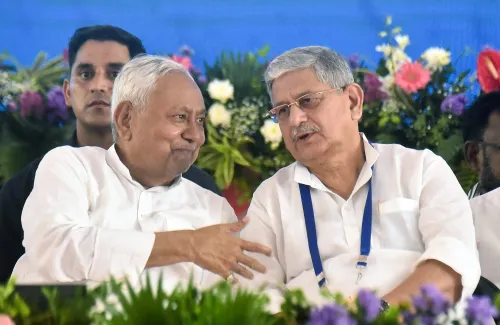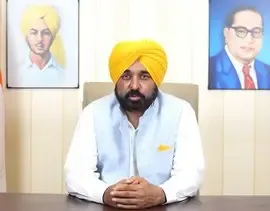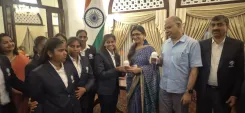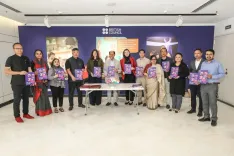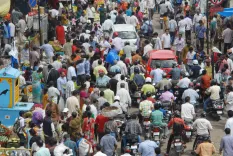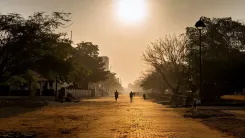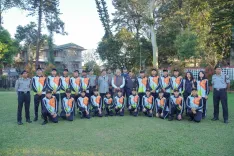How is Home Minister Amit Shah Ensuring Swift Justice for Women and Children in Northern States?
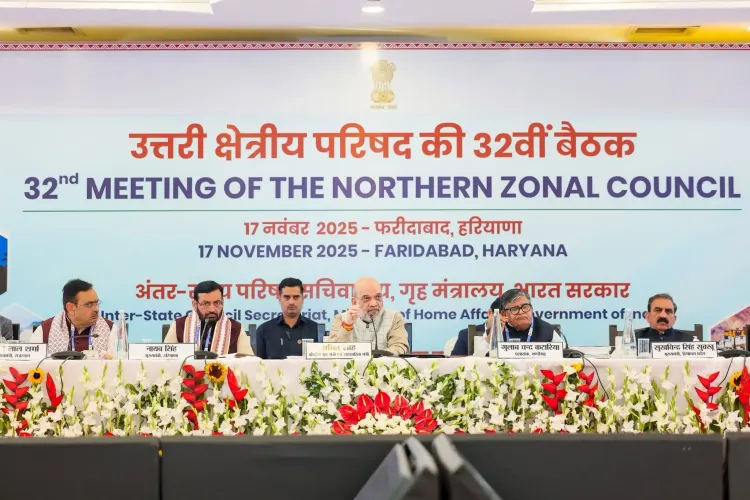
Synopsis
Key Takeaways
- Swift justice is prioritized for crimes against women and children.
- Increased number of Fast Track Special Courts (FTSCs) is essential.
- Cooperative sector holds potential for job creation.
- Efforts to combat malnutrition are being enhanced.
- Regional cooperation is crucial for national progress.
Faridabad, Nov 17 (NationPress) Union Home Minister Amit Shah urged northern states on Monday to persist in their dedicated efforts to provide swift justice in cases of crimes committed against women and children, while also addressing issues of malnutrition and stunting.
During the 32nd session of the Northern Zonal Council (NZC) in Faridabad, HM Shah emphasized the necessity of prompt investigations in instances of sexual crimes and assaults as outlined in the POCSO Act concerning women and children.
HM Shah declared that no civilized society can condone such atrocious offenses.
He stated that the protection of women and children is of utmost importance; hence, there must be an increase in the number of Fast Track Special Courts (FTSC).
Moreover, he indicated that collaboration in sectors such as agriculture and fisheries could serve as pivotal avenues to combat poverty and generate employment.
According to him, the fight against poverty and the promotion of job opportunities are achievable through cooperative efforts in agriculture and fisheries.
Referencing Prime Minister Narendra Modi’s perspective of “Sahkar Se Samriddhi” (Prosperity through Cooperation), HM Shah mentioned the extensive potential of the cooperative sector for job creation.
He added that only through a boost in employment—particularly self-employment—alongside Gross Domestic Product (GDP) growth can we fulfill the vision of a Developed India.
He remarked that GDP alone does not reflect a nation’s prosperity; real prosperity is achieved when every individual rises above the poverty threshold.
Furthermore, the Government of India’s Ministry of Cooperation has launched 57 initiatives nationwide to bolster the cooperative sector.
These initiatives include the computerization of Primary Agricultural Credit Societies (PACS), the establishment of three new national cooperative societies, and the creation of Tribhuvan Sahkari University.
The meeting also addressed several critical national concerns, including the execution of Fast Track Special Courts (FTSCs) for rapid investigation and resolution of rape incidents involving women and children, ensuring accessibility to physical banking services within a designated radius in every village, and various matters related to water distribution, the environment, education, and the Emergency Response Support System (ERSS-112).
Additionally, six significant national issues were included in the agenda, namely: urban master planning, power supply systems, strengthening of PACSs, combating child malnutrition via the ‘Poshan Abhiyan’, reducing school dropout rates, and the engagement of public hospitals in the Ayushman Bharat-Pradhan Mantri Jan Arogya Yojana.
The Union Home Minister noted that the vibrant land of Surajkund is not just historic but also a testament to rich cultural and artistic heritage.
This land is inspired by the efforts of Lord Suryanarayan, and it was here that Lord Krishna first delivered the Shrimad Bhagavad Gita, with traces of the ancient Indus Valley Civilization also found.
HM Shah acknowledged that Haryana and Punjab are the regions of esteemed Sikh Gurus, who have significantly contributed to the nation’s spiritual awakening and made tremendous sacrifices for its honor and freedom.
“Today, our nation is advancing based on its fundamental traditions, but without Guru Tegh Bahadur Ji, this advancement would not have been possible,” he remarked.
He highlighted the invaluable sacrifices made by Guru Tegh Bahadur Ji and the Tenth Guru, which fortified the country and illuminated the path of resistance.
HM Shah stated that the original purpose and function of Zonal Councils is advisory; however, over the last decade, they have become action-driven platforms yielding tangible outcomes.
He elaborated that through follow-up, we have accepted and resolved issues among states, regions, and between the Centre and state governments.
HM Shah concluded by stating that our aim is clear—achieving Regional Strength alongside National Progress and positioning India as a Global Leader in all sectors, ultimately paving the way for a Great India.
The meeting saw participation from Haryana’s Chief Minister Nayab Singh Saini, Punjab’s Chief Minister Bhagwant Mann, Himachal Pradesh’s Chief Minister Sukhvinder Singh Sukhu, Rajasthan’s Chief Minister Bhajan Lal Sharma, Jammu and Kashmir's Chief Minister Omar Abdullah, Delhi’s Chief Minister Rekha Gupta, the Administrator of the Union Territory of Chandigarh Gulab Chand Kataria, as well as the Lieutenant Governors of Jammu and Kashmir Manoj Sinha, Delhi Vinai Kumar Saxena, and Ladakh Kavinder Gupta, along with senior ministers and officials from these states and Union Territories.

